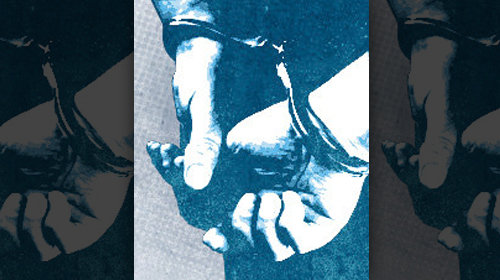
Today, the U.S. has the highest incarceration rate of any country in the world. With over 2.3 million men and women living behind bars, our imprisonment rate is the highest it’s ever been in U.S. history. And yet, our criminal justice system has failed on every count: public safety, fairness and cost-effectiveness. Across the country, the criminal justice reform conversation is heating up. Each week, we feature our some of the most exciting and relevant news in overincarceration discourse that we’ve spotted from the previous week. Check back weekly for our top picks.
New Website Shows ‘Collateral Consequences’ of Criminal Convictions
The American Bar Association and a Justice Department unit launched a new website that allows users to search federal and state laws that hinder people with criminal records from being able to do basic things — like finding work and obtaining housing — to be able to reenter society successfully. Collectively, these impediments to reentry are called the “collateral consequences” of a criminal conviction. To learn more, visit the website, read an excellent article on collateral consequences, and read a real-life account of collateral consequences that set one person back for long after his minor conviction.
GAO Report Sheds Light on Overcrowding in Federal Prisons
The rapid growth of federal prison populations has caused an overcrowding problem serious enough to get the attention of the Government Accountability Office. According to the GAO’s new report, federal prison officials reported increased use of double and triple bunking, waiting lists for education and drug treatment programs, limited meaningful work opportunities, and increased inmate-to-staff ratios. The report, titled “Growing Inmate Crowding Negatively Affects Inmates, Staff, and Infrastructure” can be found at the link above, and a summary can be found here.
Justice Policy Institute Report: Why It’s Time to End Money Bail
JPI’s new report finds that the average bail amount for people who are detained has more than doubled since 1992, despite evidence that higher bail amounts are not related to greater public safety, and that people unable to afford bail are often less dangerous than those who can make bail, and often are more likely to appear in court. The report is the first in a three-part series of analytical reports on bail, for-profit bail bonding, and the community impacts of bail that are slated for release throughout the month of September.
California Poll: 81% of Respondents Intend to Vote Yes on Three Strikes Reform Initiative
A survey of likely voters by the California Business Roundtable found that 81 percent of respondents responded either “Likely Yes”, “Somewhat Yes”, or “Strongly Yes”. The initiative, Proposition 36, would revise California’s three strikes law to impose a life sentence only when a new felony conviction is serious or violent. You can learn more about Prop 36 here. The same poll found respondents not in favor of Proposition 34, the death penalty repeal initiative, by a 50-42 margin.
West Virginia Comes Closer to Dealing with Its Overcrowding Crisis
West Virginia prison and jail overcrowding persists despite numerous studies laying out the state’s options to reduce its prison population. But the Council of State Governments is hoping that their research will have an impact. CSG is currently collaborating with a working group of West Virginia officials to study state corrections data and generate recommendations that could become part of legislation during the upcoming session. You can read CSG’s initial report to West Virginia here.
Learn more about overincarceration: Sign up for breaking news alerts, follow us on Twitter, and like us on Facebook.



